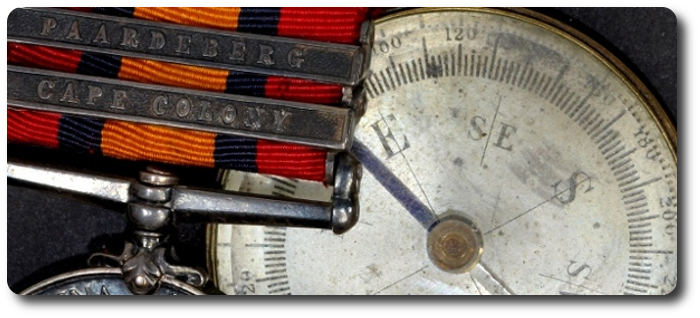
A Dozen Military Epigrams
By The Editor
The United Service Magazine, Vol. XXIII, New Series, Apr to Sep, 1901
(Reprinted from the Army and Navy Gazette of April 13th, 1901.)
1. Strategy is the science of handling troops in the theatre of war so that they shall as often as possible be where the enemy least desires or expects them.
2. Tactics is the art of handling troops on the battlefield so that they shall incur the minimum loss compatible with inflicting the maximum upon their opponents.
3. Strategical mobility is the product of organisation and endurance.
4. Tactical mobility is the product of "battle-drill" and personal courage. For its results it depends upon the general proficiency of units and the skill or instinct of individuals.
5. The Art of war is the application of common sense to the "use of ground;" upon the principle that ground enables us to conceal our weakness and to use our strength.
6. Fitness for command is displayed by those who having military brains of their own know also how to utilise those of others.
7. Councils of war war are usually the offspring of incompetence and the heralds of disaster.
8. A "Strong-man" is one whom anybody may convince but whom nobody can persuade. Councils of war may sometimes assist such men; but to the obstinate they are useless and to the weak dangerous.
9. The Right thing to do is the most efficient compromise between the ideal and the practicable.
1O. Consistency is better than brilliancy—an inferior plan well executed is preferable to a good one hindered by vacillation.
11. Good fortune is better than brains. The possession of both is rare, but where it is found the combination is invincible—while it lasts.
12. Greatness, in the eyes of contemporaries, is measured by success. Posterity sometimes pays due homage to merit.
Hannibal was ruined at Zama, Napoleon at Waterloo; yet posterity almost forgets the victors in its admiration for the greater careers of the vanquished. Perhaps at the "Warrior's Club" in Elysium, Hannibal and Napoleon stand on the hearth-rug, whilst Scipio, Wellington and Blucher listen reverently to expositions of the art of war! So, also, a number of our generals may some day sit at the feet of De Wet.
- The O'Leary Collection; Medals of The Royal Canadian Regiment.
- Researching Canadian Soldiers of the First World War
- Researching The Royal Canadian Regiment
- The RCR in the First World War
- Badges of The RCR
- The Senior Subaltern
- The Minute Book (blog)
- Rogue Papers
- Tactical Primers
- The Regimental Library
- Battle Honours
- Perpetuation of the CEF
- A Miscellany
- Quotes
- The Frontenac Times
- Site Map
QUICK LINKS

- The Senior Subaltern
- Staff Duties and the Young Officer
- How to Write Effective English
- Notes and Quotes - Staff Duties
- Advice to Officers (1782)
- Mess Rules of the Infantry School (1884)
- A Dozen Military Epigrams (1901)
- How The Loafer's Bred (1904)
- The Promotion and Examination of Army Officers (1904)
- A Few Tips for Officers, Before and After Joining (1906)
- Standing Orders of The RCR (1910)
- Standing Rules for Officers' Messes of The RCR (1913)
- The Young Officer's Guide to Knowledge (1915)
- The Duties of an Officer (1916)
- An Open Letter to the Very Young Officer (1917)
- Advice to a Young Officer (1917)
- Battalion Duties; Officers, NCOs, and Soldiers (1917)
- Pleasing Infantry Brigadiers (1917)
- Role and the Responsibilities of the CO in a Battalion Mess (1917)
- The RCR, "A" Company Standing Orders (1918)
- Some Staff Duties (1923)
- An Officer's Code (1925)
- Hints on Promotion Exams (1925)
- On Writing Appreciations (1926)
- The RCR; Rules for Officers' Messes (1927)
- Morale And Leadership (1929)
- RCSI Hints for Young Officers (1931)
- RCSI Notes on Drill (1931)
- The Study of War by Junior Officers (1932)
- Self-Training (1934)
- "The Problem of the First Ten Years" (1934)
- Standing Orders of The RCR; 1935)
- Customs of the Service (1939)
- Drill and Discipline (1939)
- Leaders Win Where Commanders Lose (1939)
- The Officer and Fighting Efficiency (1940)
- Officers' Mess (RCAF, 1940)
- The Duties of an Officer (1942)
- Comrades in Arms (1942)
- Example Standing Orders - Subalterns (1942)
- Hints for Newly Commissioned Officers (1943)
- Completed Staff Work (1943)
- FOLLOW-ship (1943)
- Hints for Junior Officers (1945)
- Officer-Like Qualities (1948)
- Military Writing (1948)
- An Analysis of the Sub-Unit Commander (1949)
- Leadership (1950)
- Neptune's Notes (undated, 1950s-60s)
- Thinking and Writing (1953)
- Examination Tactics (1953)
- Officers (1954)
- On Writing Examinations (1954)
- Customs of the Army (1956)
- 1st Bn, The RCR, Senior Subaltern (1956)
- Pigs Have Wings (1960)
- Leadership and Man Management (1960)
- Officers (1964)
- 1RCR - The Sergeants' Mess - "Tips" (1971)
- 2RCR Junior Officer's Handbook (1973)
- How to be a Successful Subaltern (1978)
- Foreword to the Infantry Journal, No. 8 (1979)
- Do You Appreciate the Finer Points of Life? (1980)
- The RCR Regimental Standing Orders - Senior Subaltern (1992)
- Infantry Company Command (2016)
- A Miscellany of Advice for Subalterns
- The Young Officer and the NCO - Quotes